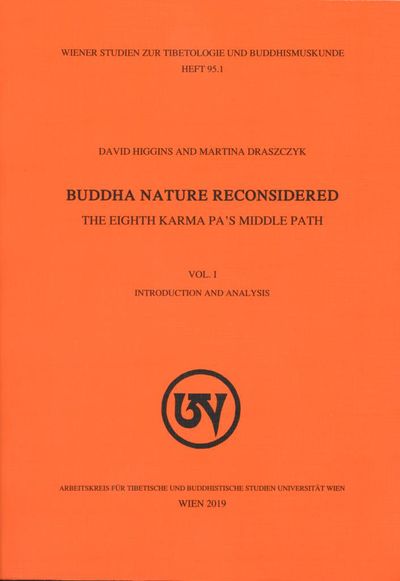Contents
- Acknowledgements11
- Preface 13
- Chapter 1: Introduction 27
- Chapter 2: Doctrinal Background
- 1. Introductory remarks 57
- 2. An outline of buddha nature [by Karma phrin las], translation 60
- 3. Key points in Karma phrin las pa’s outline of buddha nature 72
- 3.1. Tathāgatagarbha concepts in early Indian Buddhist sources 72
- 3.2. Tathāgatagarbha concepts in Indo-Tibetan Mahāyāna sources73
- 3.3. Rang byung rdo rje’s Karma bka’ brgyud position on buddha nature 74
- 4. Critical edition of Karma phrin las pa’s outline of buddha nature78
- Chapter 3: The Eighth Karma pa’s Central Claims About Buddha Nature
- 1. Introductory remarks83
- 2. Sixteen central claims regarding buddha nature85
- 2.1. Buddha nature exists equally in everyone from ordinary beings to buddhas85
- 2.2. Buddha nature discourses are of definitive meaning (nītārtha)95
- 2.3. The “nature” (garbha) of a buddha is actual, not nominal 101
- 2.4. The gotra is not metaphorical (upacāra), but attributions of cause and result are106
- 2.5. Buddha nature is buddhahood obscured by defilements111
- 2.6. The three phases of buddha nature indicate progressive degrees of disclosure116
- 2.7. The classification of three vehicles has a hidden intent (ābhiprāyika); the one vehicle (ekayāna) doctrine is definitive (lākṣaṇika)120
- 2.8. The unfolded gotra is the naturally present gotra awakened through virtue131
- 2.9. Resultant buddha nature may be equated with dharmakāya136
- 2.10. Buddha nature is not emptiness as a nonaffirming negation (med dgag)141
- 2.11. Buddha nature is not a basis established (gzhi grub) by valid cognition151
- 2.12. The identification of buddha nature and ālayavijñāna is provisional162
- 2.13. Buddha nature is not a self (coarse or subtle) but is selflessness204
- 2.14. Buddha nature is only fully revealed in Mantrayāna thought and praxis226
- 2.15. Buddha nature is natural awareness (tha mal gyi shes pa)241
- 2.16. Buddha nature consists in the unity of the two truths 257
- 3. Conclusion276


